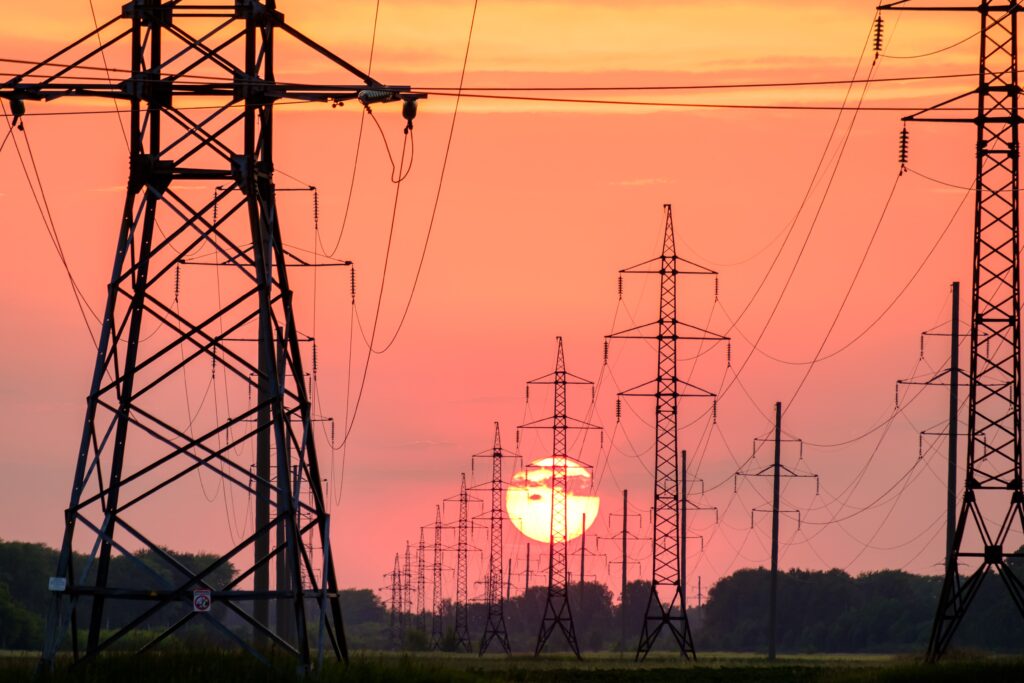Pakistan is a country that has faced various economic challenges throughout its history. In recent years, Pakistan’s economy has struggled due to factors such as high inflation, low foreign investment, a large trade deficit, and a struggling agricultural sector. To uplift its economy, Pakistan needs to implement economic reforms that address these challenges and promote growth. Here are some potential economic solutions for Pakistan:
In this blog, we have outlined 8 potential solutions for Pakistan’s economy. However, it is important to note that these suggestions are not exhaustive, as there may be numerous additional short- and long-term strategies that will be explored in future episodes of this series.
1. Pension burden on the economy.
Pakistan’s economy is facing a significant burden due to the huge pension payments made by the government.The country’s pension system is marred by inefficiencies, including mismanagement and corruption, which have resulted in ballooning pension liabilities.

These liabilities have become a heavy burden on the national budget, consuming a substantial portion of the government’s revenue and leaving little room for much-needed investments in infrastructure, education, and healthcare. Moreover, as the population ages, pension payments will continue to increase, putting even more pressure on the already-strained economy.
Addressing the issues plaguing the pension system is crucial for Pakistan’s long-term economic stability and sustainability. The 2021-22 budget allocated 480 billion rupees for pensions, which accounted for 6.3 percent of the total budgeted current expenditure of 7523 billion rupees. However, the revised estimates have projected the current expenditure at 8694 billion rupees, causing the percentage of pension outlay to decline to 5.5 percent. This decline brings little comfort to the treasury, as the unprecedented rise in current expenditure has caused significant damage to the domestic economy.
The rise in expenditure has placed the burden of meeting these costs on existing taxpayers. With nearly 70 percent reliance on indirect taxes, the incidence on the poor is greater relative to the rich, leading to an increase in the number of people being pushed into poverty. Moreover, the rise in borrowing, both domestic and external, has raised the debt servicing costs each year, further constraining the ability to slash current expenditure.
2. Promote Foreign Investment:
Foreign investment plays a critical role in the economic growth and development of a country, as it provides a range of benefits that are difficult to replicate through domestic investment alone. as it provides a range of benefits that are difficult to replicate through domestic investment alone.

When foreign investors invest in a country, they bring in much-needed capital, technology, expertise, and management skill that can help boost the localeconomy. These benefits can be especially important for developing countries like Pakistan, which may have limited resources to support their economic growth.
To attract foreign investment, Pakistan should consider implementing measures that make it easier and more attractive for foreign investors to invest in the country.
- One such measure could be simplifying regulations that govern foreign investment. Complex regulations can deter foreign investors from investing in acountry, as they may find it difficult to navigate the legal and regulatory landscape. By streamlining regulations and making them more transparent,Pakistan can create a more investor-friendly environment that is more conducive to foreign investment.
- Second approach could be to provide tax incentives to foreign investors. Tax incentives can include reduced tax rates, tax holidays, or other tax benefits that can help lower the costs of doing business in Pakistan. This can make Pakistan more attractive to foreign investors, as they may find it more profitable to invest in the country if their tax burden is lower.
- Third approach is to improve infrastructure: Investing in infrastructure is crucial for attracting FDI. This includes developing roads, airports, ports, and other transportation infrastructure, as well as improving access to reliable electricity, water, and telecommunications services. By doing so, Pakistan can create an environment that is more conducive to foreign investment.
- Finally, creating a favorable investment environment can also be important in attracting foreign investment. This can include improving infrastructure, investing in education and training programs to develop a skilled workforce, and promoting political stability and security. These factors can help build confidence among foreign investors and make them more likely to invest in Pakistan.
3. Revitalize Agriculture
Agriculture is a critical sector of Pakistan’s economy, contributing significantly to the country’s GDP and employing a significant portion of its population.

The economy in 2021 saw agriculture contributing approximately 22.67 percent to its Gross Domestic Product (GDP), while the industry sector contributed 18.8 percent. However, the lion’s share of the economy’s contribution to GDP, accounting for over half of it, came from the services sector. However, the sector has faced several challenges, including insufficient irrigation, limited access to credit, low productivity, and the use of outdated farming techniques. Addressing these issues is crucial to revitalize the sector and unlock its potential to address poverty, food insecurity, and rural development.
One of the primary challenges faced by the agriculture sector in Pakistan is inadequate irrigation. Pakistan has a vast canal irrigation system, but it is old and outdated, resulting in water losses and limited coverage. The government should invest in upgrading the irrigation system, including the construction of new dams and reservoirs, to ensure more efficient water usage.
• Another challenge is limited access to credit, which prevents farmers from investing in modern technologies and inputs. The government can address this issue by providing credit facilities to small farmers at lower interest rates and by establishing cooperatives that allow farmers to pool their resources and improve bargaining power.
In addition, training farmers in modern farming techniques and technologies can significantly improve productivity and output. The government can work with agricultural universities and research institutions to provide farmers with training and education on the latest farming practices.
4. Reduce the Trade Deficit:
Pakistan has been facing a persistent trade deficit for many years, which means that the country is importing more goods and services than it is exporting. This
has several negative consequence for the country’s economy, including a drain on foreign reserves, currency depreciation, and inflation.

To address this issue, Pakistan can focus on promoting exports by taking several measures.
• One of the most effective strategies is to provide incentives for exporters, such as tax breaks, subsidies, and other financial support. This can help to make Pakistani goods more competitive in global markets and encourage more exports.
- Another important factor is investing in infrastructure. This includes improving transportation systems, such as roads, railways, and ports, which can help to reduce the cost of exporting goods. Better infrastructure can also help to attract more foreign investment, which can lead to the development of new industries and markets for exports.
- Improving the ease of doing business is also crucial for promoting exports. This includes streamlining regulations, reducing bureaucratic hurdles, and simplifying procedures for businesses to operate in the country. By creating and more business-friendly environment, Pakistan can attract more investment and help businesses to thrive, which can lead to more exports and a reduced trade deficit.
- Finally, promoting exports also requires a focus on product diversification and upgrading. Pakistan has traditionally relied on a few key exports, such as textiles, but diversifying into new products and upgrading the quality of existing products can help to open up new markets and increase the competitiveness of Pakistani goods.
5. Address Energy Shortages:
Pakistan has been facing a severe energy crisis for several years, especially in summer season when there is a huge requirement by the households for the electricity consumption the government starts electricity breakouts in the several parts of the country which starts from one hour and goes until 18 hours in a day.

on the other hand the industrial sector is also facing the shortage of electricity, which has had a significant impact on the country’s economic growth. Here the most important part is that the electricity in Pakistan is one of the most expensive by the unit electricity provided by the government add the rate increases on regular basis not only per unit but as the consumption increases the
rate per unit also increases and for the businesses they have commercial electricity rates which is significantly higher than the residential areas.
- Moreover, incentivizing private sector investment in energy infrastructure can be a game-changer for Pakistan. This can be done by offering tax breaks and other incentives to companies that invest in renewable energy projects. It would encourage private sector players to enter the energy sector, creating a competitive market that would drive down prices and improve the quality of services. Investing in alternative energy sources and incentivizing private sector investment in energy infrastructure has several benefits. It can help Pakistan reduce its dependence on foreign oil and gas imports, which can reduce the country’s balance of payment deficit.
- Furthermore, it can create job opportunities and improve the country’s energy security. A stable and reliable energy supply can attract foreign investors and boost economic growth, making Pakistan more competitive in the global market.
6. Improve Tax Collection:
Pakistan’s tax collection system has long been plagued by inefficiencies and weaknesses, leading to a low tax-to-GDP ratio. The low tax-to-GDP ratio means that the government has limited resources to fund public services and infrastructure, which can have a significant impact on economic growth and development.

To address this issue, the government needs to take a range of measures to improve the tax collection system. One of the key steps is to simplify tax laws and procedures. Complex tax laws and procedures can discourage taxpayers
from paying taxes, leading to low compliance rates. By simplifying the tax system, the government can make it easier for taxpayers to understand their obligations and comply with them.
- In addition, the government should aim to expand the tax base by bringing more people and businesses into the tax net. This can be done by identifying individuals and businesses who are currently not paying taxes and encouraging them to register and comply with tax regulations. The government can also introduce tax incentives for businesses to promote compliance and reduce the tax burden on low-income earners.
- Another important step is to crack down on tax evasion. Tax evasion is a significant problem in Pakistan, with many individuals and businesses avoiding taxes by under-reporting income, over-reporting expenses, and other fraudulent means. The government needs to strengthen its enforcement capabilities to detect and punish tax evasion, including investing in technology and human resources to identify and prosecute tax evaders.
- Improving the tax collection system in Pakistan has several benefits. A higher tax-to-GDP ratio can provide the government with more resources to invest in public services and infrastructure, which can boost economic growth and improve the standard of living for citizens. It can also help reduce the country’s reliance on foreign aid and increase its financial independence.
7. Strengthen Public Institutions:
Pakistan’s public institutions have been plagued by a variety of problems, including corruption, political interference, and poor governance. These issues have weakened the ability of institutions such as the judiciary, police, and civil service to function effectively, which in turn has had a negative impact on the country’s economic growth and development.

- Corruption is one of the most significant challenges facing public institutions in Pakistan. This is one of the main slogan by the Ex-Prime minister of Pakistan, Mr. Imran Khan, the Chairman of one of the largest political party, Tehreek-e-Insaf. Prime Minister Imran Khan has repeatedly emphasized the need to combat corruption in Pakistan.
He has often spoken out against corruption and has made anti-corruption efforts a priority of his government’s agenda. As an individual we might have different opinion, agree or disagree with him but he has highlighted how corruption has undermined Pakistan’s progress and development, and how it has had a negative impact on the lives of ordinary citizens. He has stated that corruption is one of the main reasons why Pakistan has not been able to reach its full potential and why it continues to face challenges such as poverty, inequality, and economic instability.
- Political interference on the other hand is another major issue that weakens public institutions in Pakistan. Political leaders often seek to exert influence over the judiciary, police, and civil service for personal or political gain, which compromises the independence and impartiality of these institutions. This, in turn, undermines public trust and confidence in the institutions and contributes to a lack of predictability in the business environment.
- Poor governance is also a significant factor in the weakening of public institutions in Pakistan. Weak governance structures can lead to inefficiencies, inadequate resource allocation, and ineffective decision-making. This, in turn, can hinder the ability of public institutions to carry out their functions effectively and efficiently.
- To address these challenges, Pakistan must focus on strengthening its public institutions, particularly the judiciary, police, and civil service. This can be achieved by implementing policies and practices that promote transparency, accountability, and independence. Measures such as enhancing the capacity of these institutions, increasing their resources, and improving their governance structures can also help create a more stable and predictable environment for businesses and investors.
By strengthening public institutions, Pakistan can create an environment that is conducive to economic growth and development. This can attract more foreign investment, generate employment opportunities, and improve the living standards of its citizens.
8. Promote Education and Skill Development:
Pakistan currently has the second-highest number of out-of-school children (OOSC) in the world. According to UNCEF, approximately 22.8 million children aged 5-16 are not attending school, which accounts for 44% of the total population in this age group. Among children aged 5-9, 5 million are not enrolled in schools, and this number doubles after primary-school age, with 11.4 million adolescents between 10-14 years of age not receiving a formal education. There are significant disparities in enrollment rates based on gender, socio-economic status, and geography. For instance, in Sindh, 52% of the poorest children (58% of whom are girls) are out of school, and in Baluchistan, 78% of girls are not attending school

Education and skill development are critical for economic growth, as they improve productivity and innovation. Pakistan should invest in education, vocational training, and skill development programs to create a workforce that can compete in the global economy. Although the education budget in many countries has increased, it is still no tenough to reach the 4 percent target recommended by the World Bank.
Despite the current education budget being at 2.4 percent of the total GDP, which is an improvement, the percentage is still discouraging when compared to the recommended target. In conclusion, Pakistan’s economy faces multiple challenges that require a comprehensive approach to address them. This article proposes several potential strategies that can help uplift the country’s economy. Implementing economic reforms such as promoting foreign investment, revitalizing agriculture, reducing the trade deficit, addressing energy shortages, improving tax collection, strengthening public institutions, and promoting education and skill development can contribute to sustainable economic growth in Pakistan. It is essential for policymakers and stakeholders to work together to prioritize and implement these reforms to achieve long-term economic development and prosperity for the country.
